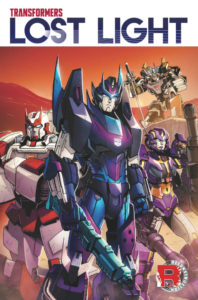What do you do with your “dog stories”–the ones that just don’t sell?
I have a few of those. There’s the story that was written the day of the deadline, because I really wanted to submit something but I had too many other deadlines due first. There’s the story that was written for a very specific anthology call that feels as though it will be hard to place. And there’s the story that just wasn’t a good fit anywhere.
These three stories ended up meeting different fates.
#
Day-of-Deadline story ended up being okay. That’s it. Just “okay.” It’s a passable action-adventure story, but when I reread it, I don’t see anything special about it. The characters aren’t that unique. Their world feels like a generic steampunk-ish setting. When I finish the story, I don’t feel that I have anything to “take away” from it other than “well, that was 15 minutes of entertainment.”
There are enough good stories out there that editors are unlikely to buy a story that’s merely “okay.”
I have this story on hold until I can give it a more unique identity. Maybe that’ll be by developing the setting, which in turn will give the characters new challenges. Maybe that’ll be by making those characters more complex. I might be able to rework the story I have, or I might have to rewrite it almost entirely.
The moral of this story is that this tale needed more time than the 24 hours before deadline to be refined into something memorable. Without a heavy rewrite, this story isn’t good enough to sell.
#
Specific-Anthology-Call is a Weird Western with horror and fantasy elements. I wrote it for a horror-themed anthology, but it quite fit the “feel” that the editors wanted for the book. Now I’m stuck with this bizarre story that’s struggling to find a home. I don’t think it has enough classic horror elements for most horror calls, but it’s too scary and gory for kid lit, and there’s no steampunk elements in it.
This story’s got a unique identity…it’s just that the identity is so quirky. I’ve shopped this one around to one Weird Western call since, and I’m waiting to see another before submitting it again. It’s going to take patience to find it a home.
#
Finally, there’s a short story I wrote that I liked very much. I didn’t write it for a call–I wrote it because this was a specific kind of tale I wanted to tell. I gave it to some beta readers, all of whom said they found it confusing. They missed the in-text hints that suggested the true reasons behind the characters’ motivations.
I rewrote it, and received the same feedback. I didn’t want to write down to my audience, or explain the obvious, but with feedback like this it was clear to me that my subtle suggestions were too subtle. My readers were missing them, and therefore didn’t understand what was going on.
I rewrote it again, in a clearer form, and when I thought I’d gotten a good balance between “make sure the reader doesn’t have to guess too much” and “beat the reader over the head with the clue-by-four,” I submitted the story. And submitted it. And submitted it.
Over three years, I received five rejections.
After each rejection I reviewed and revised. I got two “this is a serviceable story, it’s just not our kind of story” replies.
Unlike Day-of-Deadline Story, Specific Anthology Call, and my rejected flash fiction, every time I reviewed this story, I felt more faith in it. I believed that this was a good story, not just an okay one. I believed that it was unique and interesting. I felt that there was something to take away from it. I believed in this story–for logical reasons, not just because of ego-driven reasons. I knew I could, and have, written crap; I just didn’t believe this one was crap. And so I kept cleaning it up and sending it out.
Then.
A call for submissions, to a magazine where I felt the story might be a good fit–but the story had to be 1000K shorter than its current state. I wasn’t sure I could make the story clear enough to follow, without cutting out any critical plot points, and also pare 1000 words. I decided to try. I focused on wordy sentences, repetitive descriptions, non-crucial detail. Any word that wasn’t essential had to go.
I got the story under maximum length…barely. I submitted it.
It sold.
There’s an art in knowing which of your stories are fundamentally flawed–the ones where you’re better off chalking them up as learning experiences and starting fresh–and which of your stories are good stories that just need to find a place to fit.


